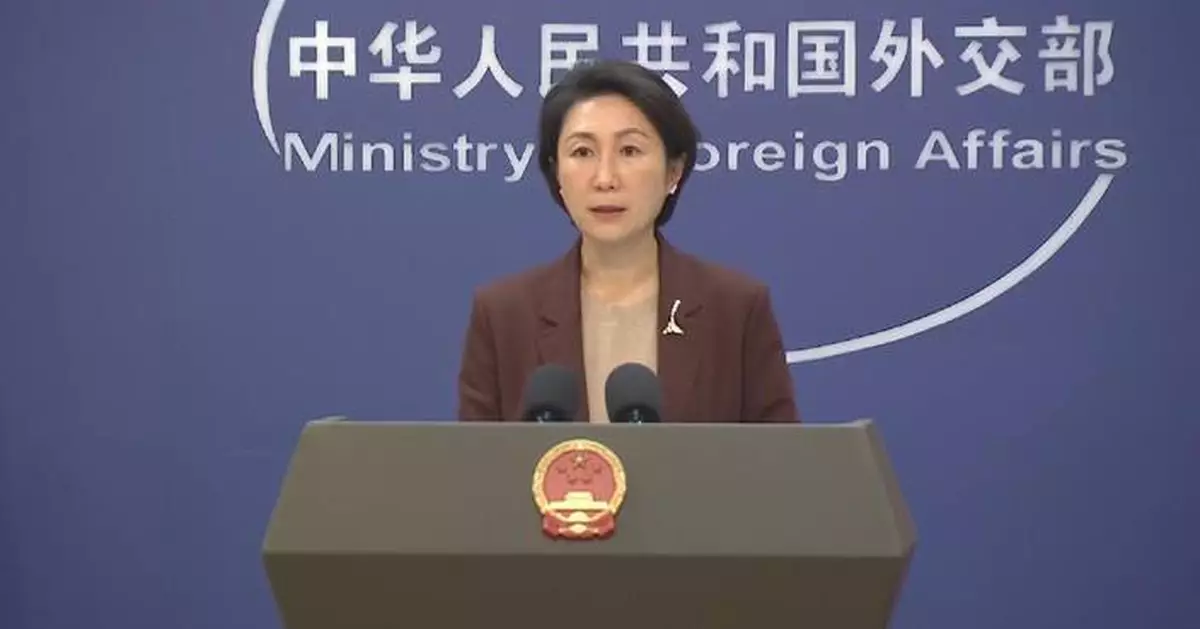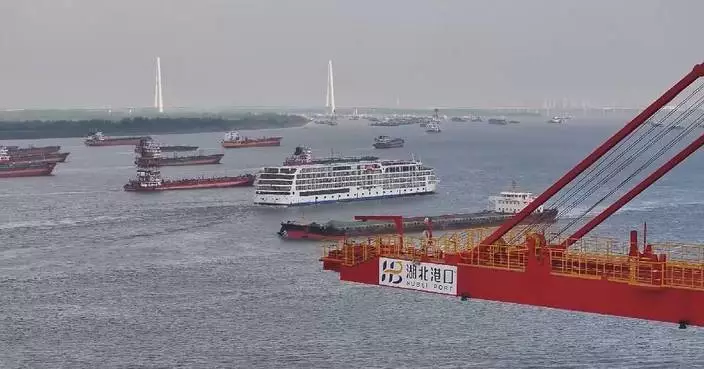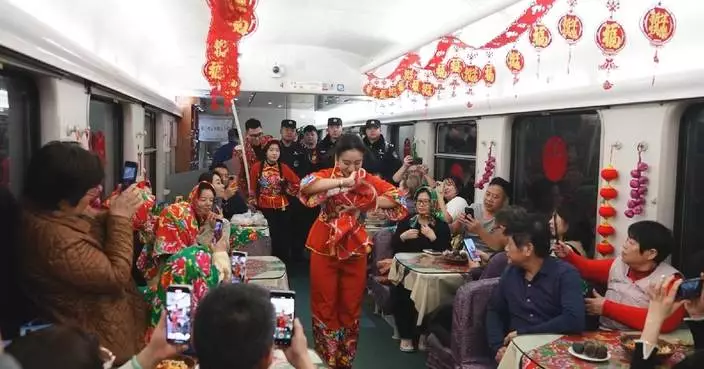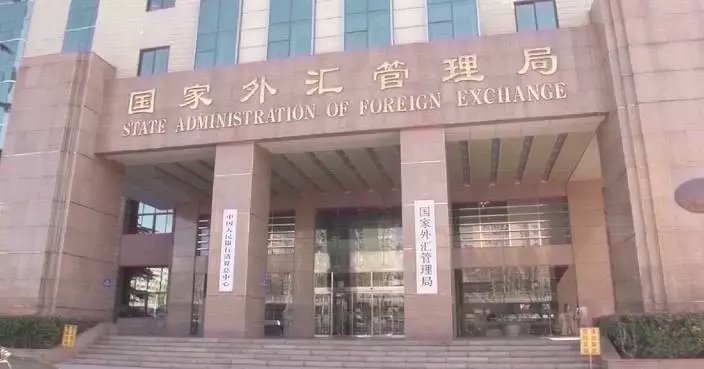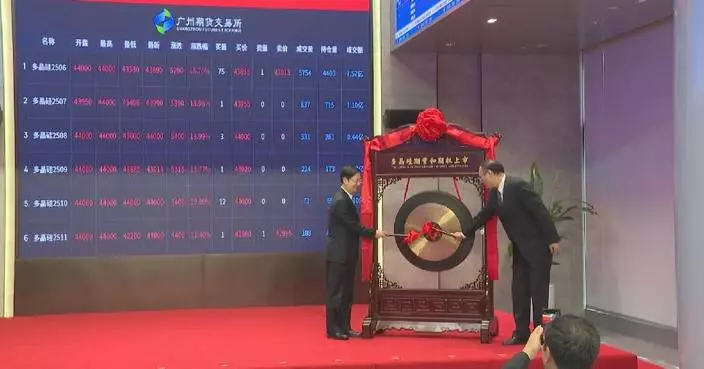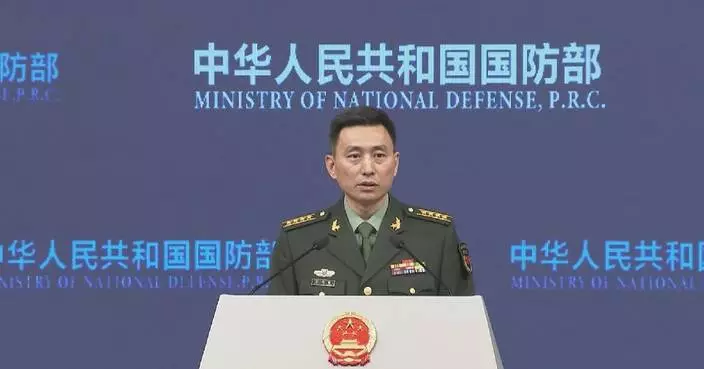The talks between Foreign Minister Wang Yi and visiting Japanese Minister for Foreign Affairs Takeshi Iwaya were friendly, active and positive, Foreign Ministry spokeswoman Mao Ning said at a press briefing in Beijing on Thursday.
Wang, also a member of the Political Bureau of the Communist Party of China Central Committee, held talks with Iwaya in Beijing on Wednesday, when they agreed to promote people-to-people exchanges between the two countries.
"The talks between the Chinese and Japanese foreign ministers were friendly, active and positive, focusing on the implementation of the major consensus reached between President Xi Jinping and Japanese Prime Minister Shigeru Ishiba at their meeting in Lima. The two foreign ministers had productive communication on comprehensively advancing the China-Japan strategic relationship of mutual benefit and building a constructive and stable bilateral relationship that fits the new era. The two foreign ministers agreed that the significance of China-Japan ties goes beyond bilateral relations, and that the two sides should continue to carry out exchanges and cooperation at all levels and through all channels, enhance mutual understanding and trust, and properly manage disagreements and differences, and promote the sound and stable development of China-Japan relations on the right track," Mao said.

Chinese, Japanese FMs' talks friendly, positive: spokeswoman
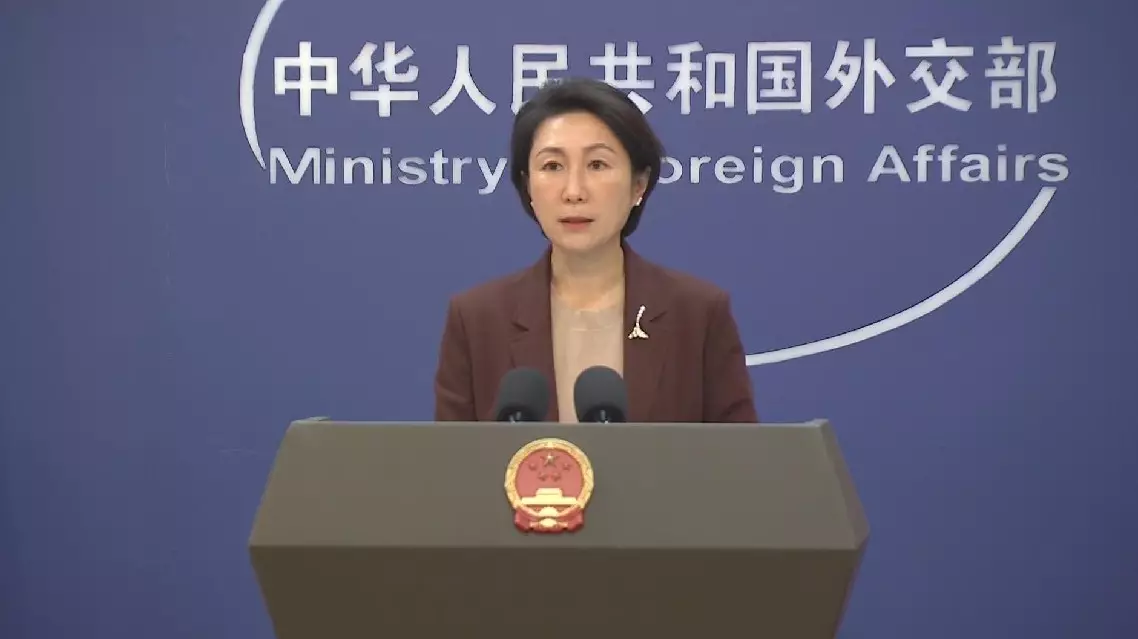
Chinese, Japanese FMs' talks friendly, positive: spokeswoman
China's Shanghai-Suzhou-Huzhou high-speed railway officially entered service on Thursday,linking the financial hub of Shanghai with the historic cities of Suzhou and Huzhou in a major boost to regional connectivity.
The high-speed railway has a designed speed of 350 km per hour and spans 164 km, connecting Shanghai Hongqiao Station with Suzhou City in Jiangsu Province and Huzhou City in Zhejiang Province. The railway has eight stations, providing convenient access to major cities and towns along the route.
This is the first high-speed railway connecting the three major economic hubs of Jiangsu, Zhejiang and Shanghai in the Yangtze River Delta, according to Chen Guoquan, the railway project designer from China Railway Construction Corporation.
Residents are excited about the operation as the new high-speed railway is expected to significantly reduce travel times and improve connectivity between the three cities.
"We're in Huzhou city. It's so convenient for us to travel by high-speed train to Shanghai. It's good for people like us, so I'm very delighted," said a passenger.
"We have several places to visit. All the four people are excited. They all arrived early," said another passenger.
Before this new train service, the journey between Huzhou and Shanghai took about two hours. Now, it only takes around 50 minutes.
With the new railway, the operating length of the railway network in the Yangtze River Delta region has surpassed 15,000 km, over half of which is high-speed rail.
Along the railway, high-end industries are expected to cluster, further accelerating the high-quality development of the economic belt, according to Zhang Zhipeng, associate professor at Shanghai Jiao Tong University.
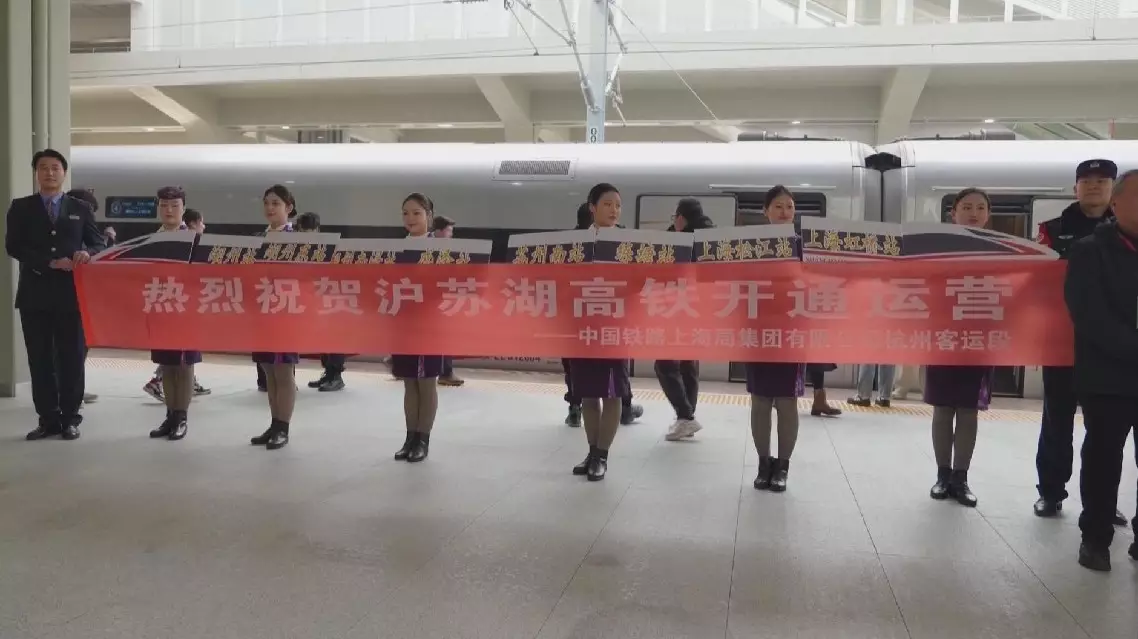
Shanghai-Suzhou-Huzhou high-speed rail line starts operation




